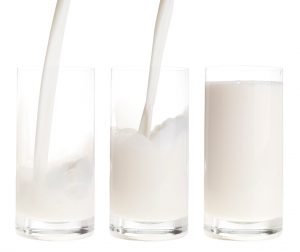Flax Milk: close but no cigar.


Flax Milk: Flaxseed Milk contains no cholesterol or lactose, making it a heart-healthy alternative. Flaxseed milk is also low in calories and sugar compared to other plant-based milks on the market. It is a little thin and sweet for my taste.
- Nutrition: One Cup: 50-70 calories, 3-4g fat, 0g saturated fat, 8g protein, 2 grams carbohydrates, 30 percent DV calcium, 25 percent DV vitamin D, and 25 percent vitamin B12.
- Advantages: Flax mile is high in fiber, flax milk is rich in alpha-linolenic acids, which heart-healthy fats that prevent heart disease.
- Disadvantages: Flax milk is low in protein. Flavored varieties tend to be heavily sweetened, so read the label for sugar content. Must be fortified to have sufficient calcium.
The bottom line: Flax milk is an excellent source of protein and healthy fats. It is one of the better tasting milk replacements, but it is often too sweet for me. Flax milk is a decent source of fiber. Make sure to read labels before you buy because not all of them are created equal and some have quite a bit of added sugar. In general, flax milk is lower in calories so it might meet your weight loss needs, but I would recommend Fairlife milk instead.









Be the first to comment on "Milk Alternatives, Part 12: Flax Milk"